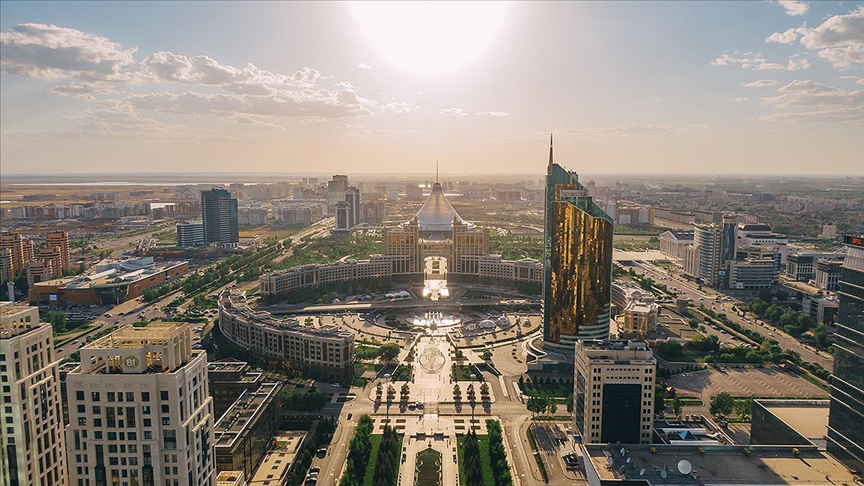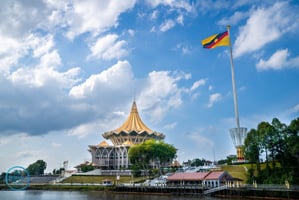Geoarbitrage: The Smart Retiree's Guide to Living Better for Less
Imagine retiring in a place where your money stretches twice, even three times as far – while enjoying a higher quality of life. That's the promise of geoarbitrage, a strategy where retirees relocate to regions with lower living costs to maximize their retirement funds.
For Singaporeans, nearby havens like Malaysia, Thailand, and Vietnam offer compelling opportunities. Malaysia's vibrant cities like George Town and Kuala Lumpur provide modern amenities at a fraction of Singapore's costs, with the added convenience of being just hours from home. Thailand beckons with its renowned hospitality and world-class healthcare system, while Vietnam emerges as an exciting option with its rich culture and remarkably affordable lifestyle.
But geoarbitrage isn't just about saving money. It's about embracing new experiences, cultures, and communities. Successful retirees who've made the move report not just financial benefits, but a renewed sense of adventure and purpose.
Understanding Geoarbitrage
At its core, geoarbitrage involves relocating to a different country or region where the cost of living is considerably lower than in one's home country. For retirees, this approach can mean enjoying a higher quality of life while spending less. The allure of sun-soaked beaches, vibrant cultures, and breathtaking landscapes in places like Southeast Asia, Central America, or Eastern Europe has captivated many. For instance, countries such as Mexico, Portugal, and Thailand have become popular destinations for retirees seeking to maximize their savings. The average cost of living in these regions is often a fraction of what one might expect to pay in the United States or Western Europe, allowing retirees to stretch their pensions or savings further than they might have thought possible.
However, geoarbitrage is not merely about finding a cheap place to live; it is also about evaluating the quality of life. Factors such as healthcare quality, safety, community, and accessibility to amenities play crucial roles in ensuring that the transition is not only financially sound but also enriching. As retirees consider relocating, they should immerse themselves in the local culture, learning the language and customs to foster a sense of belonging. This cultural integration will ultimately enhance their experience, making their retirement not just affordable but fulfilling.
The Allure of Malaysia
Malaysia stands out as an attractive option for Singaporeans considering geoarbitrage. The close proximity to Singapore—just a short drive away—makes it a convenient choice for those who wish to maintain ties to their home country while escaping its high cost of living.
One of the primary benefits of retiring in Malaysia is the significantly lower cost of living. Housing, food, and healthcare costs are often a fraction of what retirees would pay in Singapore. For example, while a comfortable apartment in Singapore might cost several thousand dollars a month, similar accommodations in Malaysia can be found for a fraction of that price. Furthermore, Malaysia's healthcare system is well-regarded and offers affordable services, making it an appealing option for retirees concerned about medical expenses. The Malaysia My Second Home (MM2H) program also provides a straightforward path for expatriates to obtain long-term residency, further facilitating the transition for those seeking a new life abroad.
Thailand: A Tropical Paradise for Retirees
Thailand has long been a favored destination for retirees, and for good reason. The country's renowned hospitality, beautiful landscapes, and vibrant culture create an inviting atmosphere for those looking to settle down. Popular destinations like Chiang Mai, Bangkok, and Phuket cater to retirees with diverse preferences, whether they seek the tranquility of the mountains or the excitement of urban living. The affordability of living in Thailand is a significant draw, with costs for housing, dining, and recreational activities often substantially lower than in Singapore.
Moreover, Thailand's healthcare system is top-notch, with numerous international hospitals offering quality care at reasonable prices. Many expatriates have shared positive experiences regarding the accessibility and affordability of medical services, making it a prudent consideration for retirees. The Thai government also offers a retirement visa program, allowing foreigners aged 50 and above to stay long-term, provided they meet specific financial requirements. This pathway simplifies the process for retirees looking to embrace life in the Land of Smiles.
Vietnam: The Hidden Gem of Southeast Asia
Vietnam is often overlooked but is rapidly gaining recognition as a viable geoarbitrage destination for retirees. The country's stunning landscapes, rich history, and burgeoning expat communities make it an appealing choice for those seeking adventure and affordability. Cities like Ho Chi Minh City and Hanoi offer a unique blend of modernity and tradition, providing retirees with a vibrant urban lifestyle.
The cost of living in Vietnam is remarkably low, making it an attractive option for Singaporeans looking to stretch their retirement funds. Rent, dining, and transportation costs are significantly lower than in Singapore, allowing retirees to enjoy a higher standard of living. Furthermore, the Vietnamese healthcare system has improved dramatically in recent years, with many private hospitals offering quality care at competitive prices. The friendly and welcoming nature of the Vietnamese people adds to the overall appeal, creating a sense of community for expatriates.
Retirees considering Vietnam should also be aware of the various visa options available. While Vietnam does not have a specific retirement visa, many expats have successfully navigated the visa landscape by obtaining business or tourist visas and exploring pathways to long-term residency.
Financial Considerations of Geoarbitrage
While the financial incentives are compelling, making the leap to geoarbitrage involves meticulous planning and considerations. Firstly, retirees must conduct thorough research to understand the tax implications of moving to a new country. Some countries offer favourable tax regimes for foreign retirees, providing substantial savings on income tax and capital gains. For example, countries like Panama and Costa Rica have established programs that cater specifically to expatriates, making the transition financially appealing. Understanding these financial nuances can greatly impact the longevity of retirement funds.
Moreover, it is essential to consider the exchange rates and their fluctuations. Currency stability can affect how far retirement funds will stretch in a new country. Retirees should aim to relocate to a country with a stable economy and currency to mitigate risks associated with potential devaluation. Additionally, evaluating the local cost of healthcare is paramount. In many cases, retirees find that healthcare services in their new country are not only more affordable but also of equal or higher quality compared to what they experienced back home. This aspect serves as a significant advantage, as healthcare expenses can quickly erode savings, especially in later years.
Lifestyle Benefits of Geoarbitrage
Beyond the financial aspect, geoarbitrage offers a myriad of lifestyle benefits that can enhance retirement years. Living in a different country often means embracing new experiences, from culinary adventures to cultural festivals. The ability to explore new landscapes and engage with diverse communities fosters a sense of adventure and fulfillment. Retirees frequently report feeling rejuvenated and inspired after making such a significant life change. The slower pace of life in many popular geoarbitrage destinations can also lead to reduced stress levels, promoting overall well-being.
Furthermore, retirees often find themselves in communities populated by like-minded individuals. Many expat communities offer a wealth of support and camaraderie, allowing newcomers to forge friendships and connections that enrich their lives. These social networks can be invaluable, particularly for those who may feel isolated after leaving behind their familiar surroundings. Engaging with others who share similar experiences makes the transition smoother and more enjoyable, ultimately leading to a more satisfying retirement experience.
Navigating the Transition: Tips for Singaporean Retirees
Embarking on the journey of geoarbitrage requires careful planning and consideration. For Singaporeans contemplating retirement in Malaysia, Thailand, or Vietnam, it is vital to conduct thorough research and explore potential destinations. Visiting these countries for an extended period can provide invaluable insights into local life, culture, and amenities, helping retirees make informed decisions.
Financial planning is also essential. Retirees should assess their income sources, such as pensions or savings, and evaluate how these funds will translate into local currencies. Engaging with financial advisors who specialize in expatriate matters can help navigate tax implications and ensure a smooth transition. Additionally, exploring local banking options and understanding the costs associated with currency exchanges can help retirees manage their finances effectively.
Taking the Leap: Practical Steps to Geoarbitrage
For those considering geoarbitrage as a viable solution for their retirement planning, taking the plunge requires careful preparation. The first step is to identify potential destinations that align with personal preferences and financial goals. Conducting thorough research on the cost of living, cultural aspects, and legal requirements for moving to a new country is crucial. Online forums, expat blogs, and social media groups can offer valuable insights and firsthand experiences from those who have already made the transition.
Once a destination is chosen, it is wise to visit the location for an extended period before committing to a permanent move. This trial period allows retirees to gauge whether the environment suits their lifestyle, providing an opportunity to explore neighborhoods, meet locals, and experience daily life. Understanding local regulations regarding residency permits, healthcare access, and taxation is also essential. Consulting with professionals who specialize in expatriate matters can help navigate these complexities and ensure a smooth transition.
In conclusion, geoarbitrage presents a compelling strategy for retirees looking to stretch their funds while embracing a vibrant and fulfilling lifestyle. As the world continues to globalize, the opportunities for exploring new horizons are more accessible than ever. By carefully considering the financial and lifestyle implications, retirees can embark on an enriching journey that not only maximizes their savings but also enhances their overall quality of life. Embracing geoarbitrage is not just a financial decision; it is an invitation to experience life to the fullest in a new and exciting setting.
Let us know what you think about this topic, and what do you want to hear next.
You can now be our community contributor and make a pitch to have your favourite personality be on our show.
Join our community group and drop us your insights on this topic.

-3.png?width=50&name=Square%20(2)-3.png)










